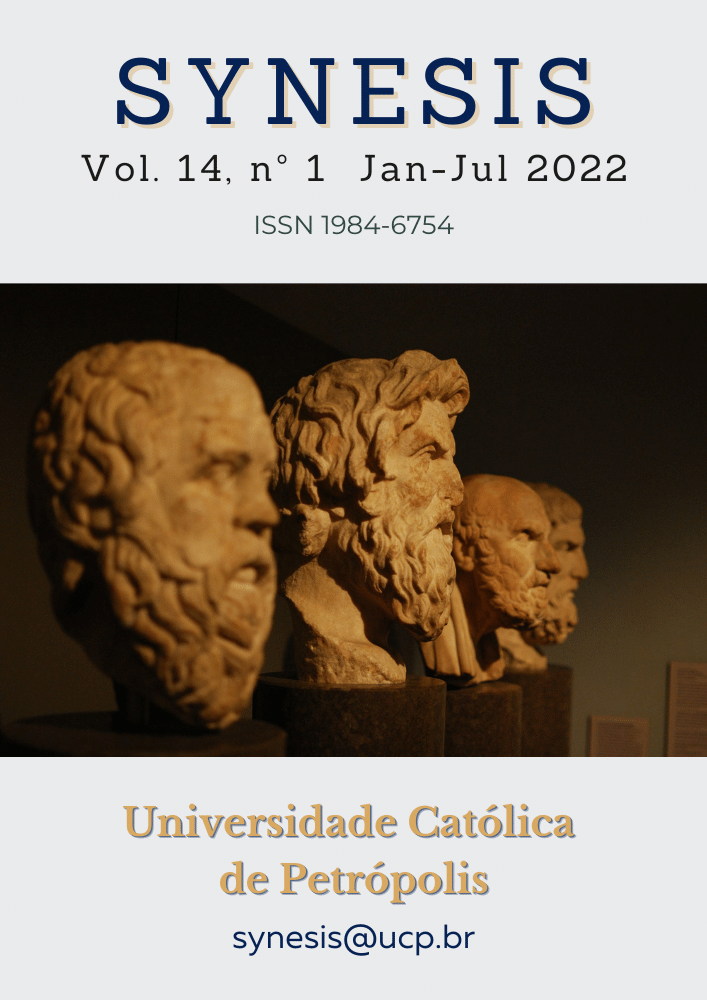Resumo
Xunzi é um dos filósofos importantes da China antiga. O nascimento e desenvolvimento da filosofia Xunzi é um reflexo da realidade volátil da situação sócio-política na China durante o período da Primavera e Outono, período dos Estados em Guerra. Ele contribuiu para enriquecer e aprofundar muitos aspectos do conteúdo, tendências e escolas da filosofia chinesa no contexto das "Cem Escolas de Pensamento" (Ren, 2020). Na sua ideologia filosófica, o pensamento sócio-político ocupa uma posição particularmente importante. De acordo com os investigadores que comentaram: "Xunzi absorveu a filosofia de Mencius, tomou o pensamento político humanista de Mencius, e ao longo das suas doutrinas teve materialismo e idealismo, contudo, Xunzi demonstrou a sua lealdade à teoria política do fundador do confucionismo"(Vo, 2010, p. 299). Há muitos pontos que mostram que as opiniões de Xunzi são úteis e ainda relevantes para os povos orientais no mundo de hoje. Portanto, o estudo do pensamento sócio-político de Xunzi tem um profundo significado teórico e prático. No âmbito do artigo, o autor centra-se na clarificação do pensamento sócio-político de Xunzi através de três teorias significativas: nomeação correcta, "a natureza humana é má" e a teoria da sociedade.
Referências
Bo, P. (2021). China and Global Governance: A New Leader? (1st ed.). Palgrave Macmillan. https://doi.org/10.1007/978-3-030-70497-1
Ch’ien, S.-m. (2020). The Grand Scribe's Records, Volume X: The Memoirs of Han China, Part III (C. M. Chan, H. v. Ess, J. William H. Nienhauser, T. D. Noel, M. Nürnberger, Jakob Pöllath, A. Siegl, & L. Wu, Trans.; J. William H. Nienhauser, Ed.). Indiana University Press. https://iupress.org/9780253050526/the-grand-scribes-records-volume-x/
Chuanhua, P. (2011). A New Discourse on Xunzi’s Philosophy of Language. Frontiers of Philosophy in China, 6(2), 193-216. https://doi.org/10.1007/s11466-011-0134-6
Csikszentmihaly, M. (2020, Mar 31st). Confucius. Stanford Encyclopedia of Philosophy. Retrieved Jan 10th, 2022 from https://plato.stanford.edu/entries/confucius/
Doan, C. (Ed.). (1991). History of China: from the period from Shang dynasty and Zhou dynasty to the Spring and Autumn period - the Warring States period. Ho Chi Minh city Publishing House.
Doan, C. (Ed.). (1992). General history of ancient Oriental philosophy. University and Vocational Education Publishing House.
Doan, C. (Ed.). (1999). Anthology of Ancient Chinese Philosophy. Tre Publishing House.
Doan, C. (2004). General history of Chinese philosophy. National Political Publishing House.
Doan, C. (2005). Oriental philosophy - values and history lessons. National Political Publishing House.
Doan, C. (Ed.). (2012). History of Oriental philosophy. National Political Publishing House.
Doan, C., Truong, V. C., Nguyen, T. N., & Vu, T. (1994). General history of ancient oriental philosophy. Vietnam Education Publishing House.
Duong, D. D. (Ed.). (2003). Origins of Chinese culture (T. T. H. Nguyen & D. H. Ta, Trans.). Writers Association Publishing House.
Durant, W. (2011). Our Oriental Heritage: The Story of Civilization, Volume I (Vol. 1). Simon and Schuster. https://www.simonandschuster.ca/books/Our-Oriental-Heritage/Will-Durant/The-Story-of-Civilization/9781451646689
Fraser, C. (2020a, Sep 22nd). Mohism. Stanford Encyclopedia of Philosophy. Retrieved Jan 14th, 2022 from https://plato.stanford.edu/entries/mohism/
Fraser, C. (2020b, Oct 5th). School of Names. Stanford Encyclopedia of Philosophy. Retrieved Jan 14th, 2022 from https://plato.stanford.edu/entries/school-names/
Galvany, A. (2017). The court as a battlefield: the art of war and the art of politics in the Han Feizi. Bulletin of the School of Oriental African Studies, 80(1), 73-96. https://doi.org/10.1017/S0041977X16001063
Gian, C., & Nguyen, H. L. (1994). Xunzi. Cultural Publishing House.
Goldin, P. R. (2018, Jul 6). Xunzi. Stanford Encyclopedia of Philosophy. Retrieved Jan 10th, 2022 from https://plato.stanford.edu/entries/xunzi/
Hui, V. T.-b. (2012). Building Castles in the Sand: The Chinese Journal of International Politics. The Chinese Journal of International Politics, 5(4), 425-449. https://www.jstor.org/stable/48615878
Johnston, I., & Ping, W. (2012). Daxue and Zhongyong (A Bilingual Edition). The Chinese University of Hong Kong Press. https://doi.org/10.2307/j.ctt1p9wr4x
Mencius. (2009). MENCIUS (I. Bloom, Trans.; P. J. Ivanhoe, Ed.). Columbia University Press. https://doi.org/10.7312/menc12204
Ngo, V. C., & Vuong, M. Q. (Eds.). (1994). Outline of Chinese cultural history. Culture and Information Publishing House.
Nguyen, H. H. (2004). Philosophy in Eastern culture. Hanoi Pedagogical University Publishing House.
Pines, Y. (2018, Nov 16th). Legalism in Chinese Philosophy. Stanford Encyclopedia of Philosophy. Retrieved Jan 10th, 2022 from https://plato.stanford.edu/entries/chinese-legalism/
Pines, Y. (2020). Forming the Early Chinese Court: Rituals, Spaces, Roles. By Luke Habberstad. Journal of the American Oriental Society, 140(3), 720-722. https://doi.org/10.7817/jameroriesoci.140.3.0720
Raphals, L. (2020, Oct 7th). Science and Chinese Philosophy. Stanford Encyclopedia of Philosophy. Retrieved Jan 17th, 2022 from https://plato.stanford.edu/entries/chinese-phil-science/
Ren, J. (2020). Beyond Mencius and Xunzi: A Third Approach to Confucianism. Journal of Chinese Humanities, 6(1), 77-91. https://doi.org/10.1163/23521341-12340091
Richey, J. (2002). Mencius (c. 372—289 B.C.E.). Internet Encyclopedia of Philosophy: A Peer-Reviewed Academic Resource. Retrieved Jan 14th, 2022 from https://iep.utm.edu/mencius/
Theobald, U. (2010, Sep 16th). Xunzi 荀子. An Encyclopaedia on Chinese History, Literature and Art. Retrieved Jan 11th, 2022 from http://www.chinaknowledge.de/Literature/Classics/xunzi.html
Tran, T. K. (1971). Confucianism. Learning Resource Center.
Vo, T. D. (Ed.). (2010). Xunzi - A critic of ancient Chinese philosophy. Culture and Information Publishing House.
Vu, K. (1991). Confucianism: Past and Present. Social Sciences Publishing House.
Xunzi. (2014). Xunzi: The complete text (E. L. Hutton, Ed. & Trans.). Princeton University Press. https://doi.org/10.1515/9781400852550
Zhang, W.-B. (2000). Mencius (371–289 bc): Human Nature is Good. In W.-B. Zhang (Ed.), Confucianism and Modernization: Industrialization and Democratization of the Confucian Regions (pp. 97-121). Palgrave Macmillan UK. https://doi.org/10.1057/9780230287303_7

Este trabalho está licenciado sob uma licença Creative Commons Attribution-NonCommercial-NoDerivatives 4.0 International License.
Copyright (c) 2022 Synesis (ISSN 1984-6754)
